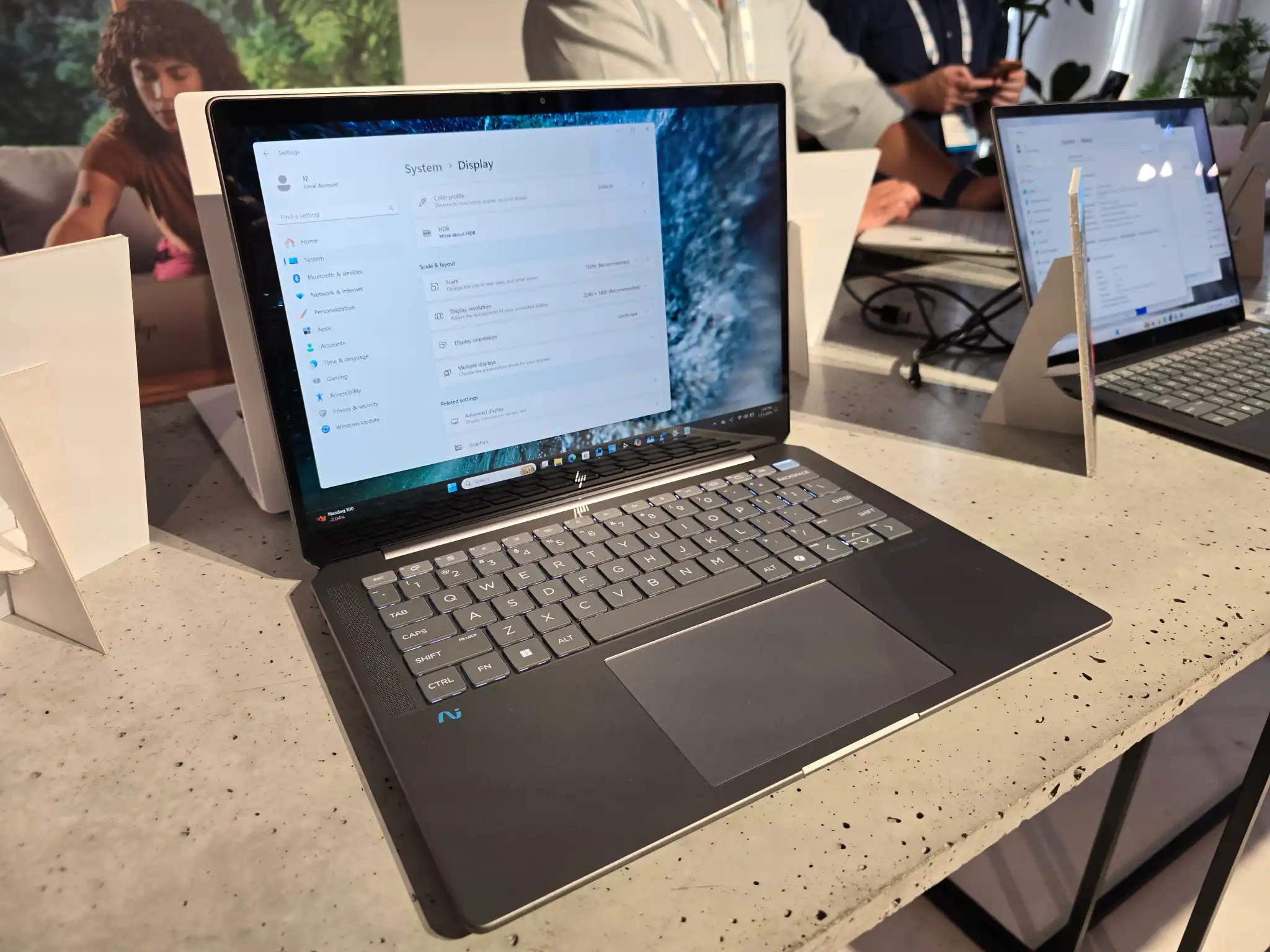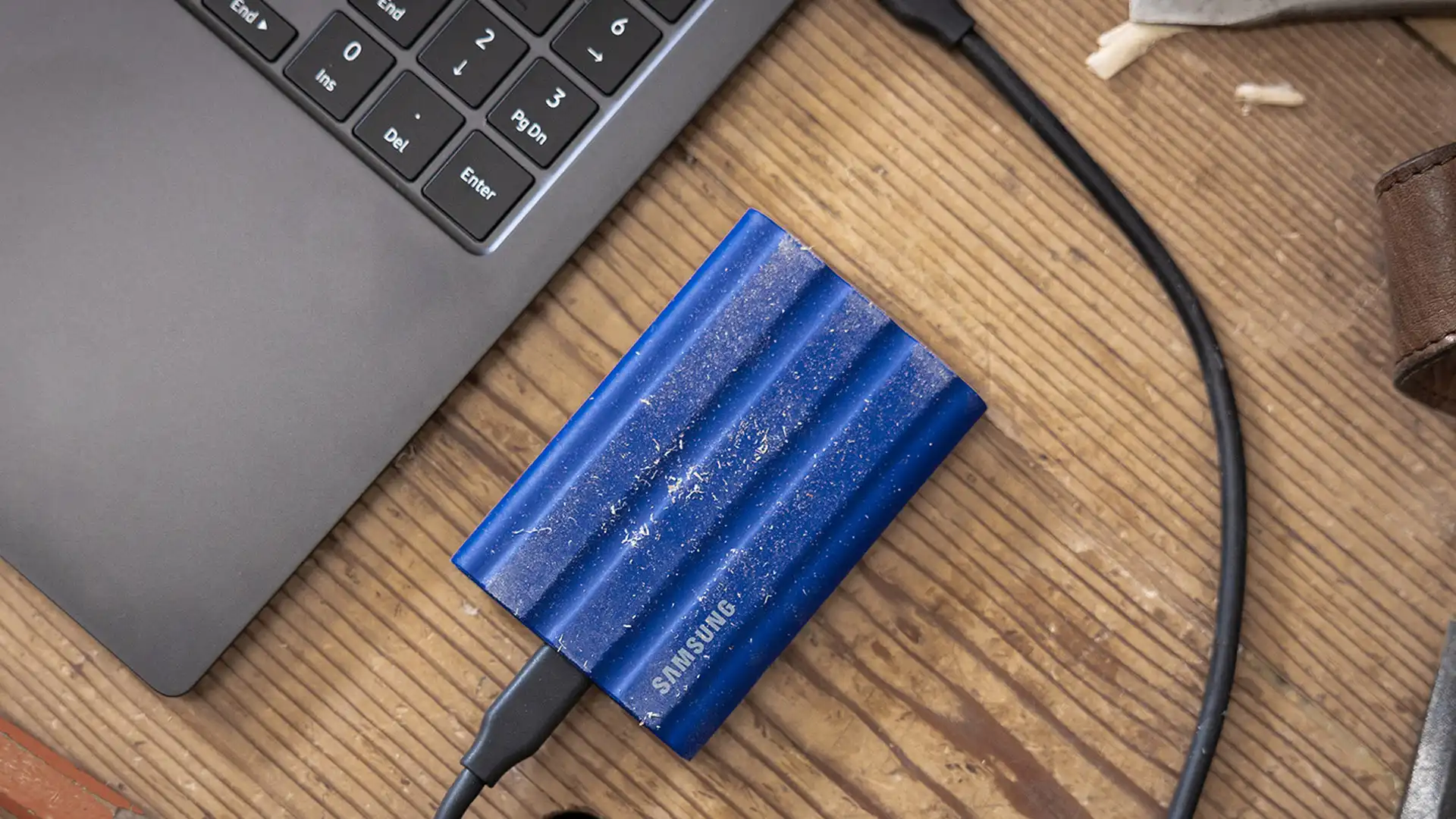Setting a new AI TOPS standard in ultra-thin laptops!
Attending HP’s Imagine AI event in New York City last Thursday gave me a real indication about the direction AI laptops are heading in.
My main takeaway is that manufacturers are going to continue to push the limits on TOPS—tera operations per second, the processing speed of NPUs in AI PCs—as mobile workers dig deeper into the kinds of benefits generative AI will deliver them.
Proof of that was HP’s announcement of a new laptop in its consumer portfolio: the HP OmniBook Ultra PC. The 14-inch clamshell-style laptop, designed for hybrid workers, makes a big leap in AI processing over the previously announced HP OmniBook X, offering what HP claims is an industry-leading 55 TOPS AI processing power in a laptop this thin.
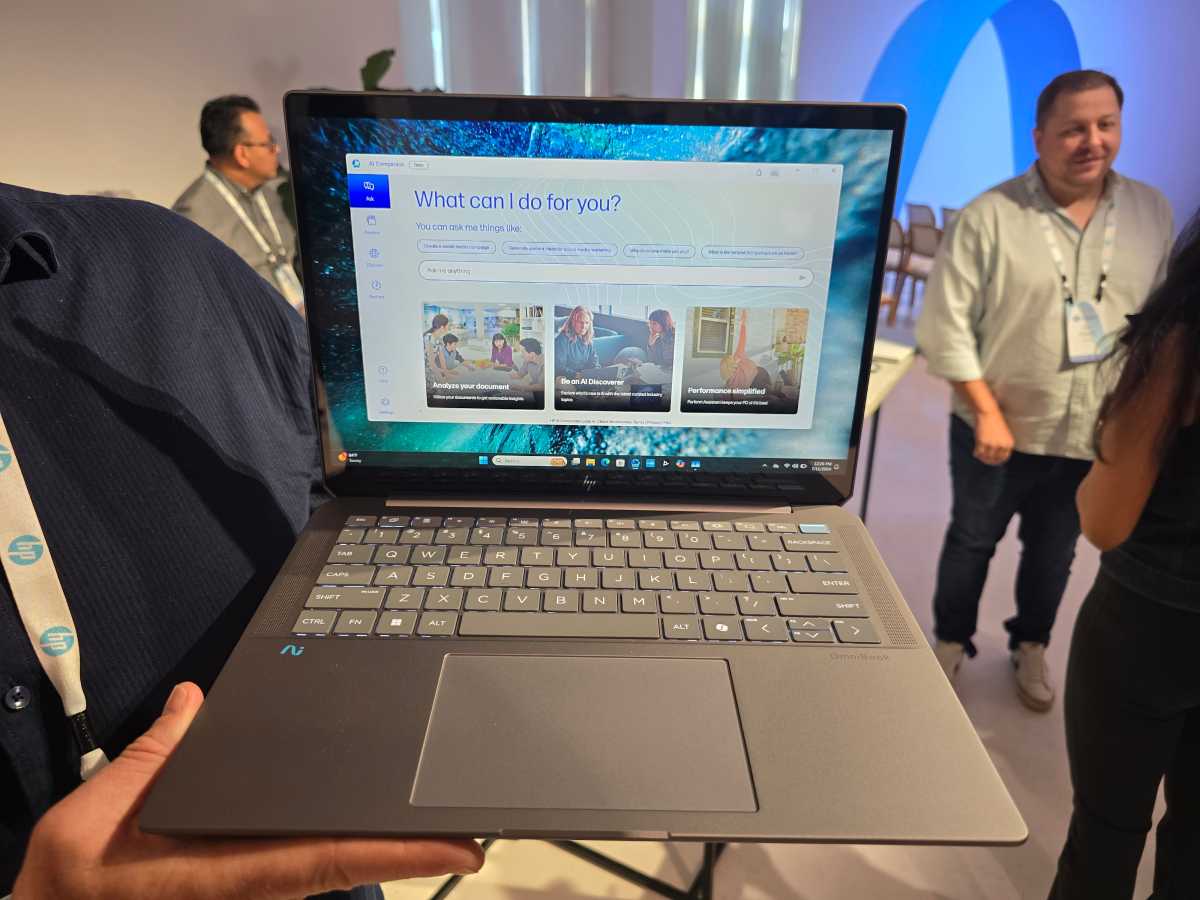
Dominic Bayley / IDG
That essentially means its NPU chip can make 15 trillion more computations per second than the OmniBook X PC, which is capped at 40 TOPS. HP made great efforts to explain the benefits of this change (which I’ll dig deeper into a little further in this article).
HP OmniBook Ultra details
Since it was positioned right alongside the HP OmniBook X at the launch event, I could easily compare the two. My first impressions? The HP OmniBook Ultra looked to be a chip off its stablemate’s block in a lot of ways, notwithstanding the laptop’s near-identical design.
The OmniBook Ultra features a stylish exterior with a Meteor Silver finish and a display framed in an impressive 86 percent screen-to-body ratio. Picking the laptop up proved it was remarkably tough. HP says that’s due to all the metal in the lid, keyboard baseplate, and hinges, which constitutes 90 percent recycled material.
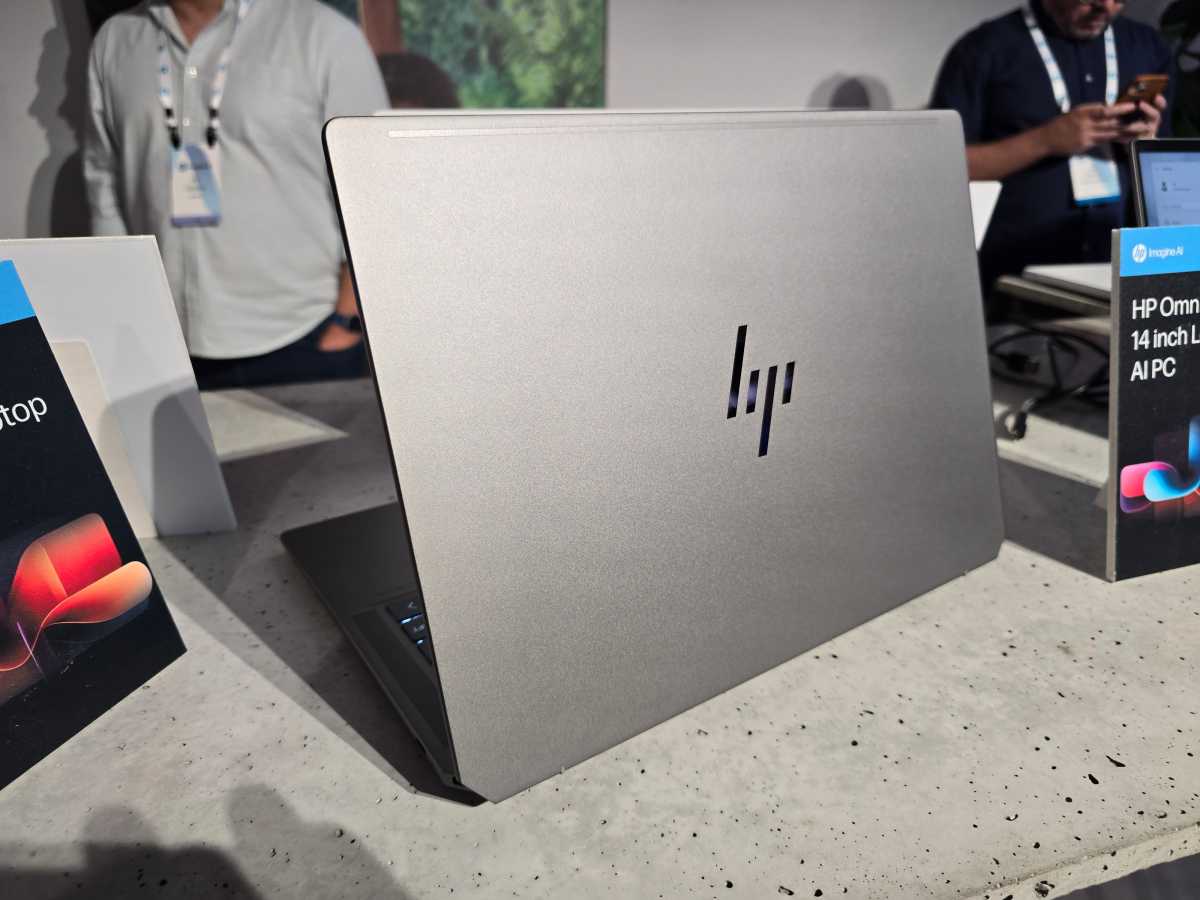
Dominic Bayley / IDG
When it comes to its weight and size, the OmniBook Ultra feels thicker and heavier than the OmniBook X—and that’s because it is at 12.41 x 8.96 x 0.65 inches and 3.48 pounds. (Compared to its sibling’s 12.3 x 8.8 x 0.5 inches and 2.97 pounds, not a a dramatic increase.)
The OmniBook Ultra model on display also featured 32GB DDR5 RAM running at 75 MT/s, but HP says a 16GB RAM option will also be available.
As I tested out the OmniBook Ultra against the OmniBook X, I could tell the Ultra was much snappier. It loaded up programs with just split-second delays, and images and videos rendered by its 9MP webcam looked that much crisper and smoother on its 2.2K (2240x1400p) IPS-grade touchscreen display.
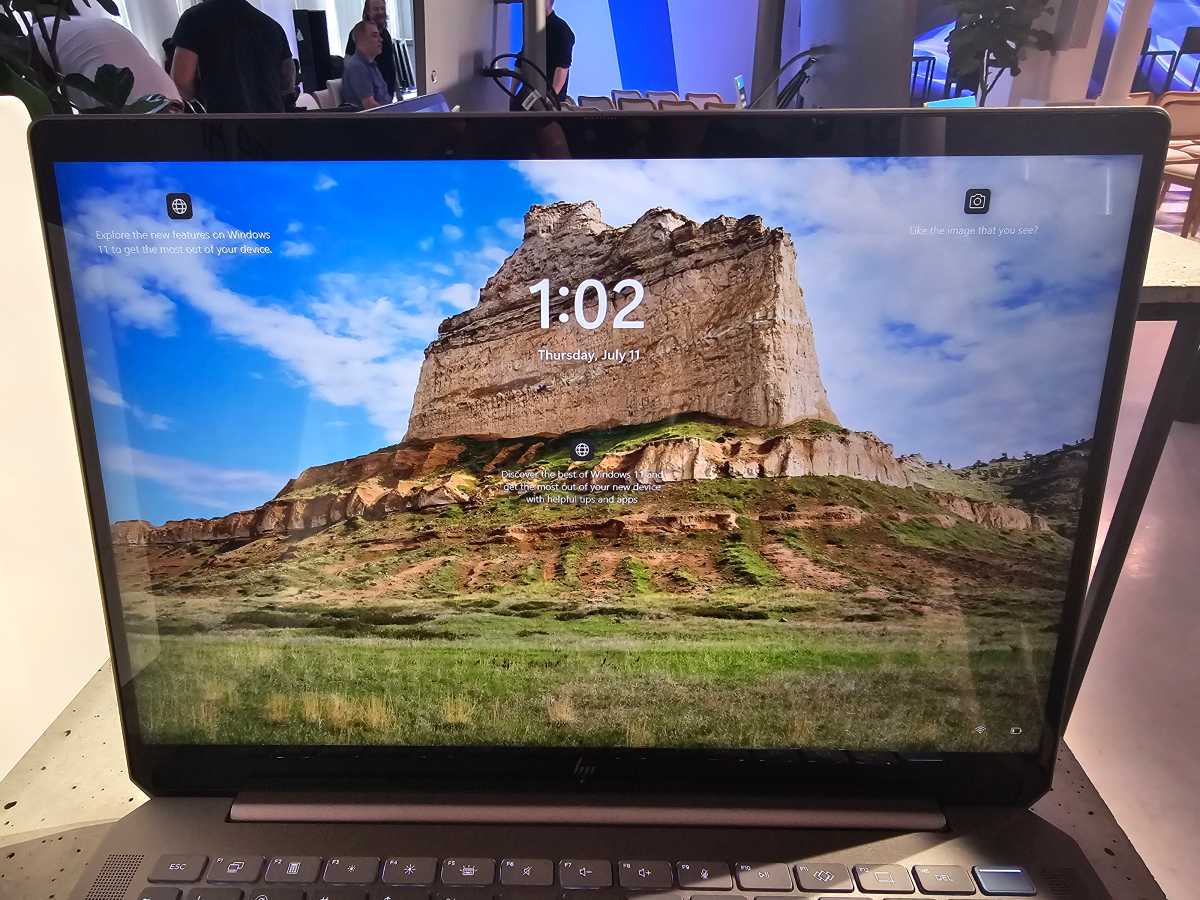
Dominic Bayley / IDG
A 16:10 aspect ratio means there’s plenty of screen space to run multiple windows or applications side-by-side. The keyboard is also a generous size, sporting large keys with good spacing between them. I was pleased to see a fingerprint scanner as well as a Windows Copilot key for easy access to Microsoft’s AI assistant.
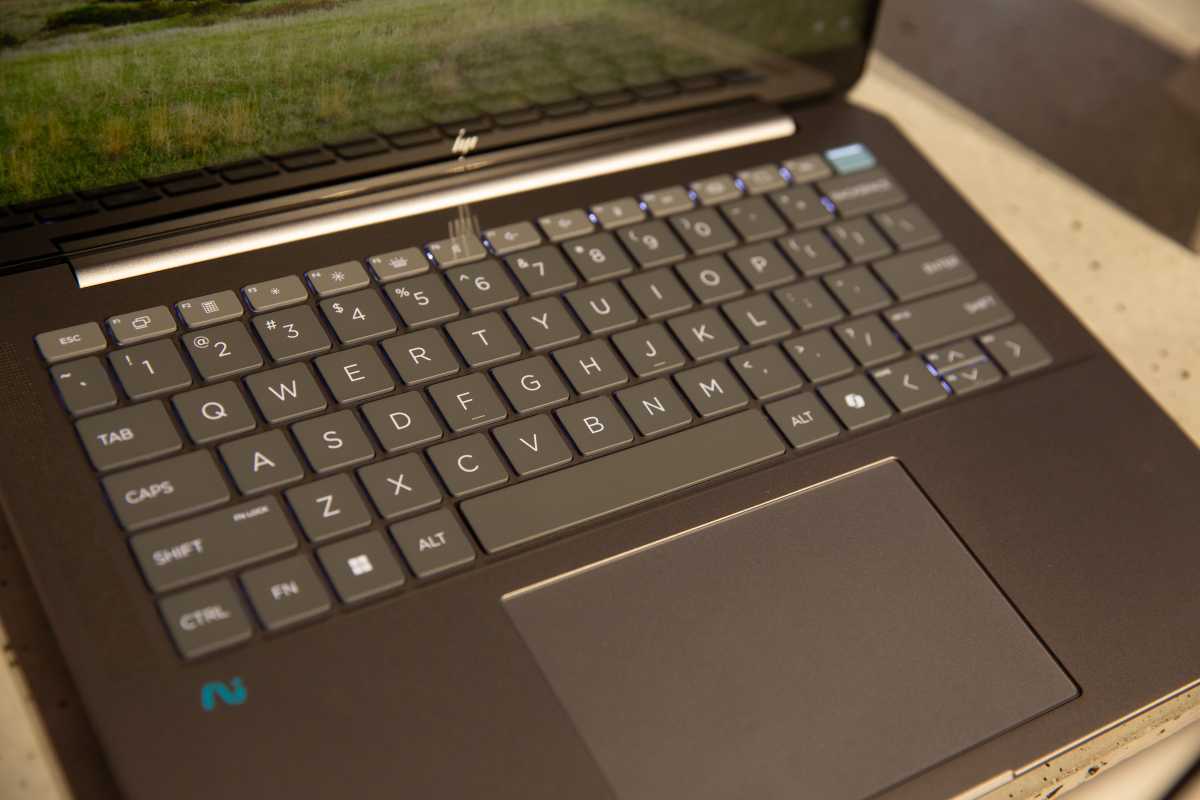
Christopher Hebert / IDG
The storage options available should please even the heaviest file users. The OmniBook Ultra will be available in models sporting PCIe Gen 4 SSDs up to a maximum 2TB.
Checking out the I/O options revealed a surprising twist: Ryzen CPU-based laptops don’t usually have Thunderbolt 4 ports, but the OmniBook Ultra boasts two. That means each of its USB-C ports is capable of transferring data at up to 40Gbps (gigabits per second) and outputting video to dual 4K displays at 60Hz.
The Thunderbolt 4 ports are found on the laptop’s right side; one sits on the straight edge while the other is placed on a small corner near the back hinge. To be honest, I’m not a fan of that corner positioning, which may make connecting peripherals a little awkward. Still, on the left-hand side you also get a USB-A port and a 3.5mm headphone jack, which means you’re not limited to just the two USB-C ports.
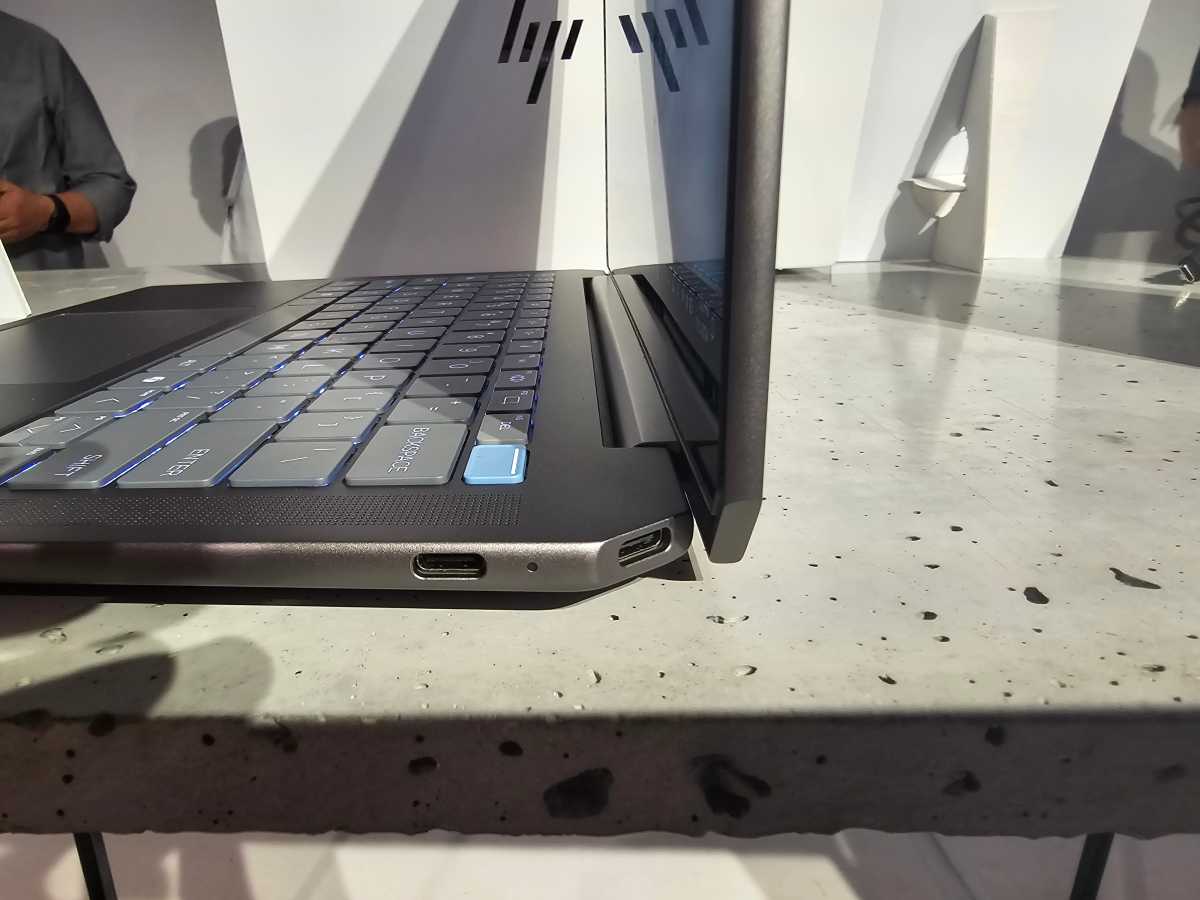
Dominic Bayley / IDG
Testing the 68 watt-hour battery wasn’t possible in the short viewing time I had, but HP says you can expect the laptop to last a maximum of 21 hours while playing videos. That’s slightly less than the 26 hours promised in the HP OmniBook X—but considering the higher NPU power available, it seems like a fair trade-off. Besides, it’s still an impressive battery life that we haven’t seen in laptops released before this year.
The OmniBook Ultra also comes with a range of HP’s productivity tools, including HP AI Companion which, among other things, optimizes the PC’s systems settings. The laptop also has a built-in Wolf Security chip that HP says allows the PC to self-heal from AI-assisted cyberattacks while simultaneously keeping data safe.
HP OmniBook Ultra’s extra power
What fascinated me the most was the increase in NPU processing power, which comes from it being powered by a different chip.
Unlike the HP OmniBook X, which sports a Qualcomm Snapdragon Series X CPU with a maximum frequency up to 3.4GHz, the OmniBook Ultra is powered by a beefier AMD Ryzen AI 300 Series processor with a maximum boost clock of 5.1GHz. The Ryzen chip also features a Ryzen AI NPU and Integrated Radeon graphics.
Now, let’s talk about the TOPS. The benefits of TOPS are commonly misunderstood, even among us tech journalists—and I, admittedly, wasn’t sure why I’d need a laptop with 55 TOPS instead of 40 TOPS.
But Sam Chang, SVP and Division President of consumer PC solutions at HP, shined some light on this:
“AI applications like HP’s Poly Cam Pro and Live Translation are going to leverage the NPU. But over time there will be very little NPU left, impacting performance and throttle, or the power benefit you get from the NPU.
So, with the extra processing power you get from OmniBook Ultra—55 TOPS—you can actually run additional AI models. You can do more AI things, faster, longer, and with more security.”
Chang used the example of faster image generation:
“With the OmniBook Ultra, you can generate a 6MP image every one-and-a-half seconds, all running locally without using the cloud or needing a subscription.”
Alex Thatcher, Senior Director of cloud client and AI experience at HP, expanded a little more on the benefits of having 55 TOPS, citing both speed and the offset of more tasks to the NPU as the main benefits:
“It really depends on the application. Something like the inclusion and accessibility software Cephable will use every TOPS you can throw at it. For that, you’re going to get a real speed benefit with more TOPS.
Then again, some applications aren’t going to use that much horsepower. But if you’re using them concurrently—like if you’re on a conference call and you’re using other AI collaboration software at the same time—then you’re going to get extra headroom to keep things ticking along smoothly.
“The minute you run out of TOPS and have to start pushing those tasks to the CPU, you’re going to start losing performance and battery life.”
To add more weight to the argument that more TOPS is generally better, HP announced the laptop alongside a number of case studies from independent software vendors (ISVs).
Companies like Google and Zoom demonstrated examples of how AI PCs are increasing productivity, everything from analyzing data faster to speeding up the development of Large Language Models (LLMs).
A spokesperson from Luminar Neo said the NPUs in HP’s AI laptops “speed up image editing tasks in his company’s AI image editing software by an average of 50 times that of non-AI PCs.”
The HP OmniBook Ultra goes on sale in August at HP.com and with a starting price of just $1,499.99. Based on that fact and the high 55 TOPS on offer, I’m thinking it may well just walk right off shelves.

